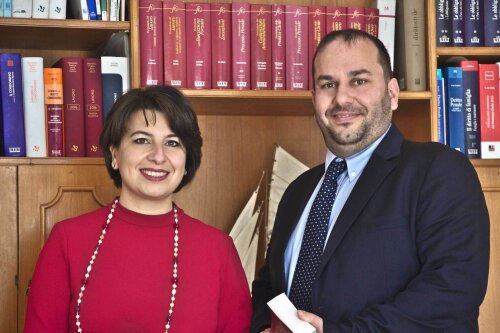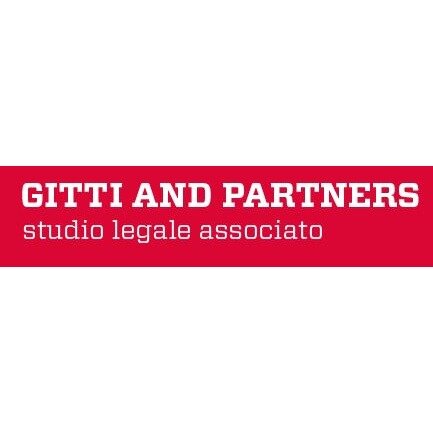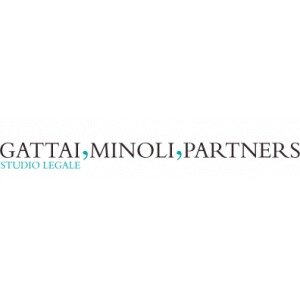Best Water Law Lawyers in Rome
Share your needs with us, get contacted by law firms.
Free. Takes 2 min.
List of the best lawyers in Rome, Italy
About Water Law in Rome, Italy
Water Law in Rome, Italy is a complex branch of legal regulation that governs the use, management, and protection of water resources, including rivers, lakes, groundwater, and public water supply systems. In a city steeped in history and faced with modern environmental demands, these laws draw from both national Italian legislation and local ordinances specific to the Rome region. Water Law deals with issues ranging from public access rights, private usage permissions, pollution control, and resource allocation to dispute resolution among multiple users. Given the importance of the Tiber River and numerous aqueducts in Rome, compliance with these legal frameworks is crucial for individuals and businesses alike.
Why You May Need a Lawyer
There are many scenarios where an individual or organization may require professional legal guidance in Water Law. Common situations include:
- Obtaining permits for water extraction or use from public sources
- Resolving disputes about water rights and access between neighbors or businesses
- Addressing allegations of illegal water use or environmental violations
- Navigating compliance when developing properties near water bodies
- Contesting fines or administrative sanctions related to water law violations
- Negotiating contracts for the sale, lease, or maintenance of water infrastructure
- Appealing decisions by local water authorities or public agencies
Due to the highly regulated and technical nature of water resources, legal assistance ensures that rights are protected and responsibilities are fully understood.
Local Laws Overview
Water Law in Rome is a combination of national legislation, such as the Italian Environmental Code (Codice dell'Ambiente), and local regional statutes and municipal ordinances. Key aspects include:
- Water as a Public Good - Water resources in Italy are considered public property and managed for the collective benefit under strict state supervision.
- Permitting Requirements - Any extraction or significant use of water, including for agricultural, industrial, or personal purposes, typically requires a permit from regional or local authorities.
- Protection of Water Quality - Discharge of any substance into water bodies is regulated to prevent pollution, with heavy penalties for violations, particularly near protected areas or heritage sites.
- Allocation and Distribution - Laws establish priorities for water use, often giving precedence to human consumption, environmental needs, and public health before industrial or commercial usage.
- Conservation and Sustainability - Measures are in place to ensure the sustainable use of water resources, including requirements for efficient usage, reporting, and impact assessments for larger projects.
- Dispute Resolution - Local authorities and courts have jurisdiction over water disputes, with options for mediation or administrative appeal depending on the nature of the case.
Complying with these laws is essential, as failure can result in administrative or even criminal penalties.
Frequently Asked Questions
What is considered a water law issue in Rome?
A water law issue in Rome typically relates to the use, management, access, or quality of water resources, such as disputes over water rights, unauthorized water use, or problems with water contamination.
Do I need a permit to use water from a well or river on my property?
Yes, both private wells and surface water usage generally require prior authorization or permits from local authorities, even if the water source is on private land.
Who manages water resources in Rome?
Water resources in Rome are regulated by a combination of municipal authorities, the Lazio Regional Government, and national agencies such as the Autorità di Bacino (Basin Authority).
What happens if someone illegally takes water from a public source?
Unauthorized extraction or diversion of water from public sources can result in administrative fines, civil liability for damages, and in some cases, criminal prosecution.
How are water rights prioritized in times of drought?
During shortages or droughts, national and local laws prioritize water allocation for essential needs, such as drinking water and sanitation, over agricultural or industrial uses.
What types of disputes are common in Water Law?
Common disputes involve water access rights, boundary issues regarding watercourses, pollution incidents, and disagreements with authorities over permit conditions.
How can I protect my property from water pollution by a neighbor or business?
If your property is affected by pollution caused by another, you may initiate legal action for damages and request intervention by environmental protection agencies to enforce clean-up or remediation.
Are there restrictions on building near rivers or streams?
Yes, there are strict regulations governing the development of properties near water bodies, often requiring environmental assessments and adherence to buffer zones to preserve water quality and prevent flooding risks.
What are the penalties for violating water law regulations?
Penalties may include administrative fines, suspension of activity, mandatory remediation works, and, in severe cases, criminal charges, depending on the scale and impact of the violation.
Where can I find updated legislation about water law in Rome?
The official websites of the Municipality of Rome, the Lazio Region, and national bodies like the Ministry of Ecological Transition regularly publish updated regulations, notices, and guidelines regarding water law.
Additional Resources
For further information or assistance, consider the following resources:
- Municipality of Rome - Department of Environmental Protection
- Lazio Regional Government - Water Resources Division
- Autorità di Bacino (Basin Authority) for the Tiber River
- Ministry for the Environment and Energy Security
- Local offices of ARPA Lazio (Regional Environmental Protection Agency)
- National Research Council (CNR) - Institute of Water Research
- Chamber of Commerce Rome - Environmental Desk
Next Steps
If you require legal assistance in Water Law in Rome:
- Document your issue clearly, including relevant correspondence, permits, maps, and reports
- Contact a licensed lawyer who specializes in environmental or water law in Rome
- Schedule an initial consultation to assess the strengths and weaknesses of your case
- Consider reaching out to public agencies for preliminary guidance or mediation services
- Be proactive in understanding your rights and obligations and follow all legal requirements to avoid penalties or delays
Taking early and informed steps is the best way to protect your interests and reach a positive resolution in water law matters.
Lawzana helps you find the best lawyers and law firms in Rome through a curated and pre-screened list of qualified legal professionals. Our platform offers rankings and detailed profiles of attorneys and law firms, allowing you to compare based on practice areas, including Water Law, experience, and client feedback.
Each profile includes a description of the firm's areas of practice, client reviews, team members and partners, year of establishment, spoken languages, office locations, contact information, social media presence, and any published articles or resources. Most firms on our platform speak English and are experienced in both local and international legal matters.
Get a quote from top-rated law firms in Rome, Italy — quickly, securely, and without unnecessary hassle.
Disclaimer:
The information provided on this page is for general informational purposes only and does not constitute legal advice. While we strive to ensure the accuracy and relevance of the content, legal information may change over time, and interpretations of the law can vary. You should always consult with a qualified legal professional for advice specific to your situation.
We disclaim all liability for actions taken or not taken based on the content of this page. If you believe any information is incorrect or outdated, please contact us, and we will review and update it where appropriate.

















